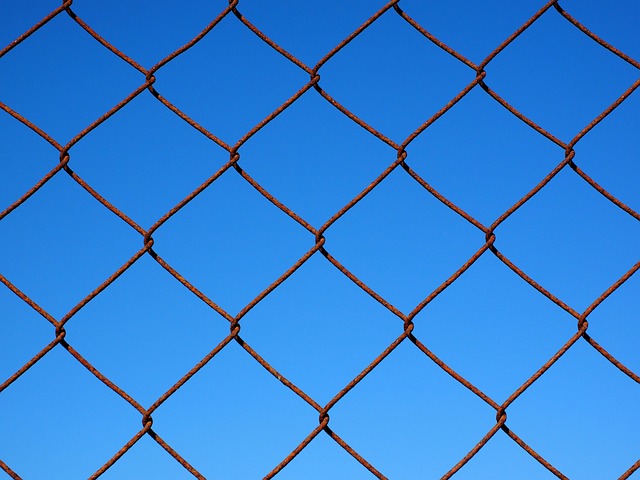In New Bedford, MA, ensuring the longevity and quality of your new fence is paramount. This comprehensive guide delves into the intricate world of fence warranties and guarantees, equipping homeowners with essential knowledge. From understanding basic warranty fundamentals to exploring diverse guarantee options, we simplify complex concepts. Learn about factors influencing warranty duration, common exclusions, and the meticulous process of filing a claim. Additionally, discover how to select the perfect fence warranty tailored to your New Bedford home’s needs.
- Understanding Fence Warranty Basics in New Bedford
- Types of Fencing Guarantees Available
- Factors Affecting Fence Warranty Length
- Common Exclusions and Limitations
- Filing a Claim: Step-by-Step Process
- Choosing the Right Fence Warranty for Your Home
Understanding Fence Warranty Basics in New Bedford
When it comes to fences in New Bedford, understanding warranty basics is crucial for any homeowner looking to protect their investment. A fence warranty, put simply, is a promise from the manufacturer or installer that your new fence will stand up to normal wear and tear for a certain period of time. This means if issues arise due to defects in materials or craftsmanship within that guaranteed timeframe, repairs or replacements may be covered without additional cost to you.
Warranties can vary widely, so it’s important to read the fine print. Common coverage areas include rot, rust, warping, and cracks. Some warranties might even extend protection against damage from harsh weather conditions specific to New Bedford’s climate. Be sure to ask your fence contractor about any guarantees they offer and what precisely is covered – and not covered – under their policy.
Types of Fencing Guarantees Available
When considering fencing options for your New Bedford property, understanding the available guarantees is essential. These assurances protect your investment and ensure long-lasting satisfaction with your new fence. There are typically three main types of guarantees to choose from: manufacturer’s warranties, installer’s guarantees, and material performance promises.
Manufacturer’s warranties cover defects in materials and workmanship, offering peace of mind that your fence will be free from issues for a specified period. Installer’s guarantees, on the other hand, focus on the installation process, ensuring any errors or omissions made by the contractor will be rectified without cost to you. Material performance promises are also valuable, as they guarantee the effectiveness and durability of the fencing material against factors like rust, rot, or damage from wildlife.
Factors Affecting Fence Warranty Length
The length of a fence warranty can vary greatly and is influenced by several key factors. One of the primary considerations is the type of material used; wooden fences, for instance, may have shorter warranties due to their potential for rot, warping, or pest damage, while vinyl or metal fences often come with longer guarantees as these materials are more durable and less susceptible to weathering. The complexity of installation also plays a role; intricate designs or specialized installations might be covered for shorter periods, whereas straightforward, level installations can qualify for extended warranties. Additionally, the reputation and experience of the installer can impact the warranty length, as established companies may offer more comprehensive coverage to protect their work’s longevity.
Common Exclusions and Limitations
When considering fence warranties and guarantees in New Bedford, MA, it’s crucial to understand common exclusions and limitations. Many standard warranties do not cover damage caused by extreme weather conditions such as storms, high winds, or ice. They also typically exclude damages resulting from poor installation, lack of maintenance, or accidents. For instance, if a heavy branch falls on your fence during a storm and causes damage, the warranty might not cover repairs unless you have an extended policy that specifically includes weather-related incidents.
Moreover, warranties often have time limits, usually ranging from 1 to 5 years. Beyond this period, any issues with the fence are likely to be considered the homeowner’s responsibility. Additionally, some warranties may exclude certain types of fences, like chain link or wooden structures that haven’t been properly treated against rot and decay. It’s essential to carefully read and understand the terms and conditions of any warranty before making a purchase to ensure you’re aware of what’s covered and what isn’t.
Filing a Claim: Step-by-Step Process
When it comes to filing a claim under your fence warranty or guarantee in New Bedford, MA, the process is designed to be straightforward but requires careful attention to detail. First, review your contract thoroughly to understand the specific terms and conditions related to repairs or replacements. Note the timeframe for filing claims and any required documentation, such as photographs of the faulty fence and proof of purchase.
Next, contact the warranty provider directly. Most companies have a dedicated customer service team that can guide you through the process. Present your policy details, describe the issue with your fence, and request assistance. They may ask for additional information or even schedule an inspection before approving the claim. Once approved, follow their instructions regarding repairs or replacements, ensuring all work is completed according to their standards to avoid any complications in future claims.
Choosing the Right Fence Warranty for Your Home
Choosing the right fence warranty is an essential step in ensuring your investment lasts and stays protected. When considering a warranty, first assess your needs and the type of fence installed. Different materials—wood, vinyl, or metal—may come with unique warranty periods and coverage options. For example, wood fences often offer warranties ranging from 5 to 20 years, while vinyl and metal fences might have warranties up to 25 years.
Next, review the terms and conditions of each warranty. Look for details on what is covered, such as material defects or repair costs, and what might be excluded. Some warranties only cover labor costs for repairs, while others include replacement parts. Additionally, consider the reputation of the fencing company offering the warranty—a reliable provider will offer transparent and fair terms, ensuring you’re protected even after installation.
